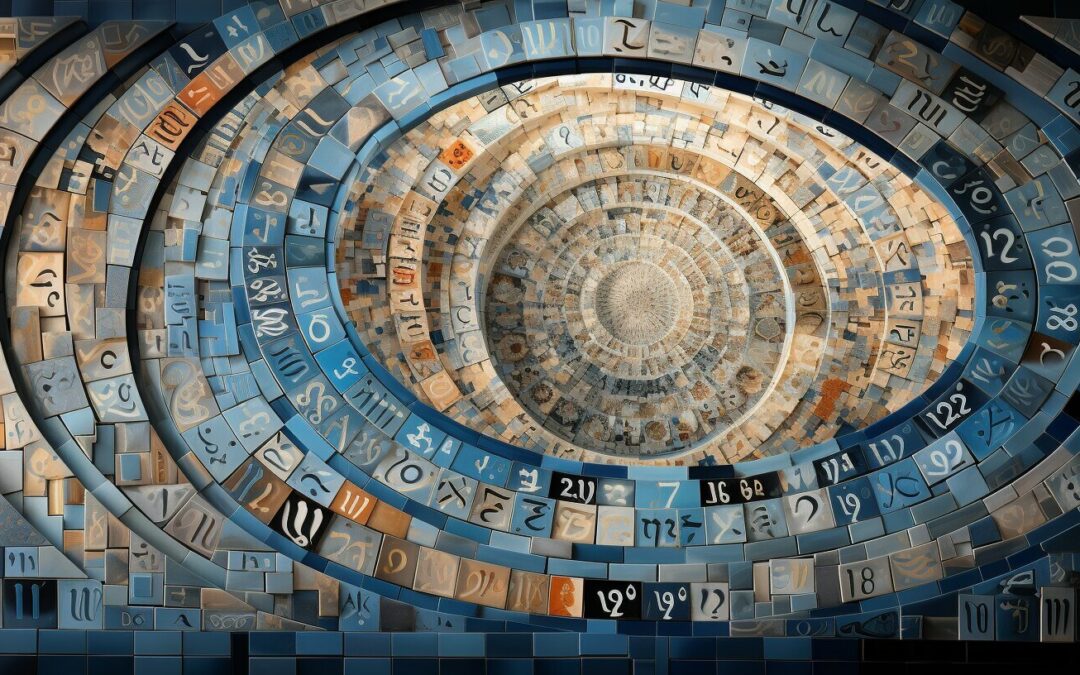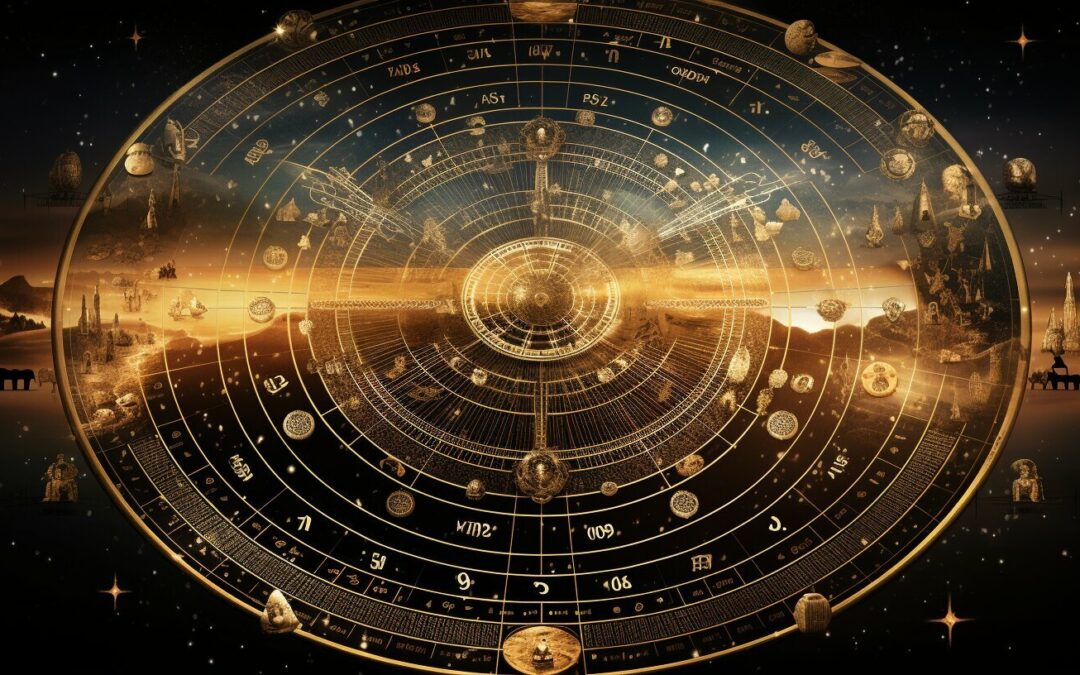
Exploring Numerology in Islam: Unveiling the Secrets
For today’s article, I have researched and delved deeper into the topic of numerology in Islam. Numerology is an ancient practice that has been used for centuries in various cultures and religions, including Islam. In this article, we will explore the Islamic approach to numerology, its traditions, and the role of numbers in the faith. We will also discuss the interpretation of numbers and their symbolism in Islam, as well as its significance in various Islamic practices and rituals. Finally, we will address any criticisms and debates surrounding numerology in Islam, emphasizing its enduring significance for believers.
Key Takeaways
- Numerology is an ancient practice that has been used for centuries in various cultures and religions, including Islam.
- Islam has a unique perspective on numerology, believing that numbers hold symbolic meanings and can reveal divine messages.
- There are various numerology traditions within Islam with different origins and practices.
- Numbers play a significant role in Islamic rituals, holy scriptures, and daily life, reflecting their spiritual importance.
Understanding the Islamic Approach to Numerology
As primarily a stranger to Islam, I find learning about the different perspectives on this topic fascinating. In the Islamic faith, numbers are believed to hold symbolic meanings and to reveal divine messages.
Unlike some other religious traditions, Islamic numerology is not considered a separate branch of the religion; rather, it is seen as a tool for interpreting and understanding the faith. This perspective is reflected in the Quran, which contains numerous references to numbers and their significance.
Islamic Interpretation of Numbers
Islamic numerology is based on the belief that each number has its own unique meaning and symbolism. For example, the number one is associated with the idea of unity and oneness, reflecting the Islamic belief in the unity of God. The number three is often seen as representing the three dimensions of human existence – physical, intellectual, and spiritual – while the number seven is considered a symbol of perfection and completion.
While some numbers hold positive associations in Islamic numerology, others are seen as negative or unlucky. The number 13, for example, is often avoided or feared due to its association with bad luck and misfortune.
Numerology and Destiny in Islam
In Islam, numbers are also believed to reflect divine guidance and to play a role in shaping a person’s destiny. Many Muslims look to numerology as a way of understanding their place in the world and their relationship with God. Some even use numerology as a tool for making decisions and predicting the future.
However, it is important to note that Islamic numerology is not used in place of prayer or other religious practices. Rather, it is seen as a complement to these practices, allowing believers to deepen their understanding of the faith and to connect more deeply with God.
The Power of Numerology in Islamic Practices
Numerology plays a significant role in many Islamic practices and rituals. For example, the number of times a prayer is recited can have important symbolic meanings, while the mystical practice of Sufism often uses numerology as a means of connecting with the divine.
Overall, the Islamic approach to numerology is complex and multifaceted, reflecting the depth and richness of the faith. By exploring this topic further, we can gain a deeper understanding of the role that numbers play in shaping our spiritual lives.
Numerology Traditions in Islam
Numerology has a rich history in Islamic tradition, and its practices vary across different cultures and regions within the faith. One prominent numerology tradition in Islam is the science of Abjad, also known as Ilm-al-Jafar, which assigns each Arabic letter a numerical value. This system is used to decode Islamic texts and derive hidden meanings.
Another numerology tradition is based on the significance of the number 786, which is believed to represent the opening phrase of the Quran, “Bismillah ar-Rahman ar-Rahim” (in the name of Allah, the most merciful, the most compassionate). This number is often used as a symbol of good luck and protection in Islamic cultures.
In addition, numerology is also incorporated into Islamic art and design, particularly in the use of geometric shapes and patterns that have symbolic meanings and represent the interconnectedness of all things in the universe.
Overall, numerology traditions in Islam serve as a means of uncovering hidden messages and insights from the divine, offering believers a deeper understanding of their faith and spiritual practices.
Role of Numbers in Islam
Numbers play a significant role in the Islamic faith, with each number holding its own symbolic meanings and associations. The belief that numbers have spiritual power is deeply rooted in Islamic thought, with many scholars citing the Quran and Hadith as sources of numerical symbolism.
For example, the number one (1) represents the oneness of Allah, the creator and sustainer of the universe. The number three (3) is associated with the Holy Trinity of God, Muhammad, and the believers. The number seven (7) is seen as representing completion and perfection, as Allah created the universe in seven days.
In addition to their symbolic associations, numbers are also integral to Islamic rituals and daily life. Muslims are required to pray five times a day, with each prayer consisting of a specific number of units (rakat). The number of days of fasting during Ramadan is also significant, as it mirrors the lunar calendar and emphasizes the importance of self-discipline and spiritual reflection.
Significance of Numerology in Islamic Scriptures
Numerology is also present in Islamic scriptures, with certain verses and passages being associated with specific numbers. For example, the first verse of the Quran consists of seven letters, emphasizing the importance of the number seven in Islamic tradition. The number 19 is also significant, as it appears multiple times in the Quran and is associated with the concept of unity.
Islamic scholars and mystics have long studied the meanings behind numerical patterns in the Quran and Hadith, seeking to understand the deeper spiritual significance of these numbers.
Numerology in Islamic Daily Life
Numerology is also evident in Islamic daily life, with many Muslims seeking to incorporate certain numbers into their personal lives. For example, the number 99 is often used to represent the 99 names of Allah, while the number 786 is seen as a form of blessing and protection.
Overall, the spiritual significance of numbers in Islam is a central aspect of the faith, influencing everything from rituals to art and architecture. By studying and understanding these numerical associations, Muslims seek to deepen their relationship with Allah and gain insight into the mysteries of the universe.
Islamic Interpretation of Numbers
Numbers hold significant spiritual meanings in Islam, and each numerical value is believed to represent divine messages. Here are some examples:
| Number | Symbolic Meaning |
|---|---|
| 1 | Represents the Oneness of Allah (God) and is considered the most powerful number in Islamic numerology. |
| 2 | Symbolizes balance and harmony, as exemplified by the two testimonies of faith in Islam: “There is no god but Allah, and Muhammad is His messenger.” |
| 3 | Represents the three holy cities of Islam (Mecca, Medina and Jerusalem) and the three dimensions of existence: physical, spiritual, and intellectual. |
| 4 | Symbolizes the four books of revelation in Islam (Torah, Psalms, Gospel, and Quran) and the four elements (earth, air, fire, and water). |
Other numbers also hold significance in Islamic numerology, such as seven representing the seven heavens and ten representing the ten commandments.
It is important to note that numerology in Islam should not be confused with divination or fortune-telling. Rather, it is a tool for spiritual reflection and contemplation.
The Power of Numerology in Islamic Practices
I have had the exclusive privilege of observing the influence of numerology in various Islamic practices and rituals. Indeed, numbers hold great significance in the Islamic faith and are often incorporated into daily life.
For example, the recitation of specific verses from the Quran during daily prayers is often done in a specific number of cycles, known as rakat. The number of rakat varies depending on the time of day, with fajr (dawn) prayer consisting of two rakat, and isha (night) prayer consisting of four.
Similarly, the Hajj pilgrimage, which is considered one of the five pillars of Islam, involves specific numerical rituals. Pilgrims must circle the Kaaba, a cube-shaped structure in Mecca, seven times, and walk seven times between two hills, Safa and Marwa.
The use of numerology is also apparent in many Islamic traditions, including the calculation of zakat, the obligatory charity given to the poor. The zakat is typically calculated as 2.5% of one’s net worth, and is often paid in a specific number of installments over the course of a year.
Overall, it is clear that numerology plays an important role in Islamic practices and rituals. By incorporating specific numbers into their daily lives, Muslims believe they are connecting with the divine and aligning themselves with the will of Allah.
Numerology and Destiny in Islam
As a firm believer in the concept of destiny, I find the Islamic interpretation of numerology fascinating. In Islam, numbers are seen as a reflection of divine guidance and symbols of the universe’s intricate patterns.
The Quran itself contains numerous examples of the importance of numerology, with certain numbers holding particular significance. For instance, the number seven is said to represent completeness, while nine is associated with blessings and mercy.
Furthermore, numerology plays a crucial role in various Islamic rituals and practices. During the annual pilgrimage to Mecca, for example, pilgrims perform seven circumambulations around the Kaaba, a structure that is said to embody the number seven’s meaning of completion.
While numerology is not a substitute for faith in Allah, believers may consult numerical interpretations as a way of seeking divine guidance, particularly when faced with difficult decisions or uncertainties. Some even view certain numbers as lucky or unlucky, with particular numbers believed to offer protection against harm.
Overall, the significance of numerology in Islam serves to emphasize the faith’s intricate and multifaceted nature, as well as its emphasis on seeking divine guidance in all aspects of life.
Numerology in Islamic History and Art
Numerology has been an essential aspect of Islamic culture and history, significantly influencing art, architecture, and calligraphy. The use of numbers and their symbolic meaning has been prominent in Islamic art and architecture, with many structures incorporating specific numerical proportions in their design.
One notable example is the Great Mosque of Kairouan in Tunisia, which features a square courtyard measuring 100 meters on each side, representing the perfection of traditional Islamic architectural forms.
| Numbers in Islamic Art | Meaning |
|---|---|
| One | Unity and the oneness of God |
| Three | Divine perfection |
| Four | The four directions of the earth |
| Seven | The seven heavens |
Islamic calligraphy also often incorporates numerology, with certain letters and phrases assigned numerical equivalents. This practice emphasizes the significance of the written word in Islam and its relationship to numbers.
“The use of numerology in Islamic art and architecture showcases the significance of numbers in Islamic culture and reinforces the belief that they hold symbolic meaning.”
The influence of numerology is not limited to art and architecture. Islamic history is also marked by the use of numerology, with many scholars interpreting numerical patterns in historical events as divine messages. For example, the number seven is believed to hold significant meaning in Islam, which is reflected in the Seven Sleepers story and the seven heavens mentioned in the Quran.
Overall, numerology has played a vital role in shaping Islamic culture and history, with its impact visible in many aspects of Islamic art, architecture, and literature. Its significance continues to be relevant in modern times, reinforcing the enduring influence of numbers in the Islamic faith.
Criticisms and Debates Surrounding Numerology in Islam
As with any aspect of religion, numerology in Islam has faced criticism and debate from various perspectives. Some believe that the practice of numerology goes against the fundamental tenets of Islam and is rooted in superstition. Others argue that numerology is a legitimate way to interpret divine messages and that it has been used by scholars throughout Islamic history.
One of the main criticisms of numerology in Islam is that it can lead believers to assign too much importance to numbers, detracting from the true essence of the faith. Some argue that this focus on numerology can lead to a form of idolatry, which is strictly forbidden in Islam.
Another criticism is that numerology can lead to a distortion of scripture and the manipulation of text to fit a predetermined numerical pattern. This can lead to misinterpretation and a deviation from the true intended message of the Quran.
“Numerology in Islam has its critics and doubters, but the practice remains an integral part of Islamic culture and belief for many.”
On the other hand, proponents of numerology in Islam argue that it is a legitimate tool for understanding divine messages and that it has been used by Islamic scholars throughout history. They point to the use of numerology in the Quran, where numbers are believed to hold symbolic meanings and reveal deeper messages.
Proponents also argue that numerology can provide insight into the hidden meanings of the Quran and that it can be used to unlock secrets that are not immediately apparent in the text. They believe that numerology is a legitimate way to interpret the Quran and that it can lead to a deeper understanding of the faith.
Despite the debates and criticisms surrounding numerology in Islam, the practice remains an integral part of Islamic culture and belief for many. Whether one chooses to believe in the power of numbers or not, it is clear that numerology has played a significant role in the development and interpretation of Islamic faith and tradition.
Conclusion
In conclusion, numerology holds great significance in the Islamic faith and is believed to reveal divine messages and guidance. Through our exploration of Islamic numerology, we have discovered its origins, traditions, and interpretations of specific numbers. We have also seen how numbers play a significant role in Islamic rituals, holy scriptures, and daily life. Furthermore, we have examined the historical and artistic influence of numerology in Islamic cultures and addressed any criticisms and debates surrounding it.
As I conclude this article, it is clear that numerology remains an enduring aspect of the Islamic faith, one that continues to fascinate and inspire believers. Whether incorporated into daily life or utilized in special occasions, the power of numerology remains an integral part of the Islamic tradition.
FAQ
Q: What is numerology in Islam?
A: Numerology in Islam refers to the belief that numbers hold symbolic meanings and can reveal divine messages within the faith.
Q: How does numerology relate to Islam?
A: Numerology is considered to be a part of Islamic tradition, with believers using numbers to interpret and understand various aspects of their faith.
Q: Are there specific numerology traditions within Islam?
A: Yes, there are various numerology traditions within Islam, each with their own practices and origins.
Q: How do numbers play a role in Islam?
A: Numbers hold significant importance in Islamic rituals, holy scriptures, and daily life, reflecting their spiritual significance within the faith.
Q: What is the interpretation of numbers in Islam?
A: In Islam, specific numbers are believed to hold symbolic meanings, with each number having its own associations within the faith.
Q: How is numerology incorporated into Islamic practices?
A: Numerology is integrated into various Islamic practices and rituals, highlighting its importance and relevance to believers.
Q: What is the relationship between numerology and destiny in Islam?
A: In Islam, numbers are seen as reflecting divine guidance and can be interpreted as signs for one’s destiny.
Q: How has numerology influenced Islamic history and art?
A: Numerology has had a significant impact on Islamic cultures, influencing artistic forms such as architecture and calligraphy.
Q: Are there any criticisms or debates surrounding numerology in Islam?
A: Yes, numerology in Islam has faced criticisms and debates, with opposing viewpoints and controversies surrounding its practice.

